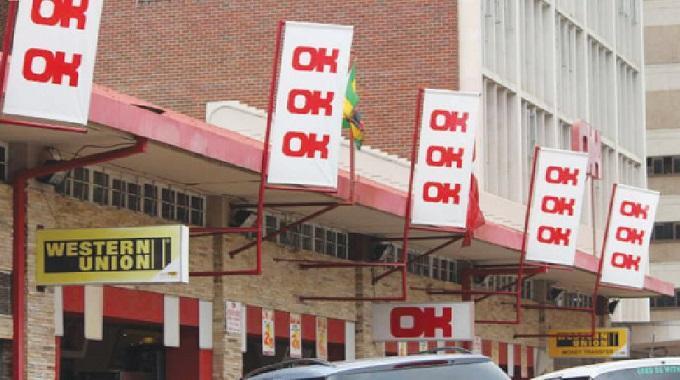News / National
OK Zimbabwe shuts down Food Lover's Market outlets
04 Jun 2025 at 08:46hrs |
0 Views

Retail giant OK Zimbabwe has announced the closure of its premium Food Lover's Market outlets in Borrowdale and Avondale, a move that underscores the mounting pressure on Zimbabwe's formal retail sector.
In separate announcements shared on social media, Food Lover's Market Zimbabwe confirmed that the Borrowdale branch will cease operations on June 8, while Avondale will close on June 22. The company expressed gratitude to loyal customers and promised daily in-store specials as a farewell gesture.
"To our beloved Avondale community, a heartfelt thank you for your loyalty over the years... as a mark of our gratitude, we have daily exciting specials in-store for you," the post read.
The closures come just two years after OK Zimbabwe acquired the Borrowdale, Avondale, and Bulawayo Food Lover's Market outlets in a bid to diversify its product offering and tap into the premium grocery space. The Greendale branch was not part of the acquisition, as it operates under a separate franchise.
OK Zimbabwe is not alone in facing headwinds. A number of formal retailers, including N. Richards Group and Spar Zimbabwe, have also shut down outlets - most recently Spar Queensdale - citing rising operational costs, unstable currency conditions, and reduced consumer spending power.
While large retailers struggle with high overheads, a wave of informal traders and tuck shops has been thriving, thanks to lower pricing models, tax avoidance, and greater supply chain flexibility. This shift has reshaped the country's retail dynamics, with customers increasingly opting for cheaper, informal alternatives.
Retail analysts warn that unless the macroeconomic climate stabilises and fiscal pressures on formal businesses are eased, more closures could follow, further weakening Zimbabwe's organised retail landscape.
The closure of the Food Lover's Market branches in two of Harare's most prominent suburbs serves as another stark indicator of how deep-rooted economic challenges continue to rattle established businesses.
As consumers grapple with inflation and currency volatility, the future of large-scale retail in Zimbabwe hinges on adaptive strategies, policy support, and an improved business environment.
In separate announcements shared on social media, Food Lover's Market Zimbabwe confirmed that the Borrowdale branch will cease operations on June 8, while Avondale will close on June 22. The company expressed gratitude to loyal customers and promised daily in-store specials as a farewell gesture.
"To our beloved Avondale community, a heartfelt thank you for your loyalty over the years... as a mark of our gratitude, we have daily exciting specials in-store for you," the post read.
The closures come just two years after OK Zimbabwe acquired the Borrowdale, Avondale, and Bulawayo Food Lover's Market outlets in a bid to diversify its product offering and tap into the premium grocery space. The Greendale branch was not part of the acquisition, as it operates under a separate franchise.
OK Zimbabwe is not alone in facing headwinds. A number of formal retailers, including N. Richards Group and Spar Zimbabwe, have also shut down outlets - most recently Spar Queensdale - citing rising operational costs, unstable currency conditions, and reduced consumer spending power.
While large retailers struggle with high overheads, a wave of informal traders and tuck shops has been thriving, thanks to lower pricing models, tax avoidance, and greater supply chain flexibility. This shift has reshaped the country's retail dynamics, with customers increasingly opting for cheaper, informal alternatives.
Retail analysts warn that unless the macroeconomic climate stabilises and fiscal pressures on formal businesses are eased, more closures could follow, further weakening Zimbabwe's organised retail landscape.
The closure of the Food Lover's Market branches in two of Harare's most prominent suburbs serves as another stark indicator of how deep-rooted economic challenges continue to rattle established businesses.
As consumers grapple with inflation and currency volatility, the future of large-scale retail in Zimbabwe hinges on adaptive strategies, policy support, and an improved business environment.
Source - NewZimbabwe
Join the discussion
Loading comments…


































